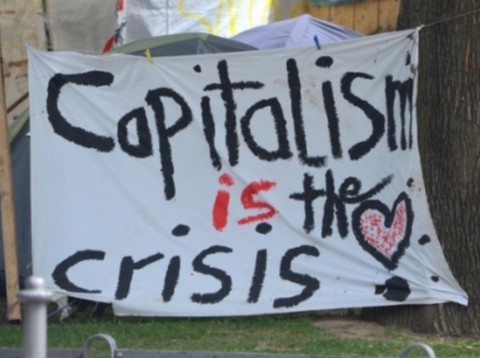
When the “Moral Foundations of Capitalism” class was axed at Stanford University last spring, news of its demise quickly went viral, with some questioning whether college students are ever taught anymore about the positive attributes of America’s free market system.
The answer to that? Not really.
A survey by The College Fix of 31 public and private universities across the nation found that the subject of capitalism is often either maligned, ignored, or taught from a perspective other than objective economics.
It would appear, based on the survey results, that the chances a humanities major takes a class that delves into capitalism is far more likely than a business major taking one. Out of the 60 classes uncovered, only six were economic elective classes geared toward an objective look at the most influential economic system in modern history.
The United States today is not really a free market. In fact, most economists, both those who favor a free market and those who favor a centrally controlled economy, call the U.S. a mixed economy – some aspects of a free market combined with government regulation.
While the workings of free markets underlie almost any basic economics course, capitalism as an economic system is not explicitly taught in macroeconomics, a class almost universally offered and required for business and economics majors.
So where do students learn about capitalism and all it entails?
The survey searched class titles and descriptions of online course catalogs. Of the 31 universities looked at, nearly half did not offer a course in any department that even mentioned capitalism.
Of the universities that did offer a class on capitalism, they were often either: negative in tone; focused on capitalism in countries other than the United States; or were takes on the economic system from perspectives other than a business one, such as through the lenses of the humanities.
Some of the most egregious examples of a slanted look at capitalism include:
Magical Money and Enchanted Capitalisms, a Religion course at Wesleyan University
Global Capitalism Racial Society, an Afroamerican and African Studies class at University of Michigan
Markets, Morality and the Future of Capitalism, a Philosophy course at the University of Pennsylvania
Poverty under Post Industrial Capitalism, a joint Economics and African American Studies course at Yale University
Overall, survey results indicate that offering an elective dedicated exclusively to an unbiased look at all the various aspects of capitalism is not a priority at most universities.
It’s more often viewed from a social science lens – history, politics, anthropology, philosophy, ethnic studies, foreign studies, environmental issues. This leaves certain aspects of economics, such as negative externalities, open to be taught in ways as to leave students thinking only government can fix things, some scholars say.
Other possible outcomes could be professors who deem corporations evil and greedy, and tell students businesses rape the globe of natural resources and take advantage of human slave labor.
The problems that can arise when the federal government alters the law of supply and demand may not be broached.
All this means humanities majors who do not take a straightforward economics course can, and often do, walk away with negative views on capitalism.
As for the survey results, it’s important to quantify that “capitalism” is deemed by some in the field of economics as a derogatory word coined by Karl Marx to describe rich men hoarding all their capital at the expense of the greater citizenry, and economists who bring up the term “capitalism” often do so only to point out holes in the system.
While it holds a favorable perception by many conservatives, economists rarely use “capitalism” and more often use terms like “free market” and “competitiveness” and “public choice,” some scholars say. This is one reason why the survey’s search may have found such few classes on the subject.
Another reason why capitalism may be dissected in the humanities and not by economics professors is because educators who teach in the social sciences do not have a stake in the matter, one economics teaching assistant tells The Fix.
That is, they don’t look at economic data, don’t write papers in the hopes that influential think tanks and politicians will see their work and implement their policies. But philosophers are free to pump up or demean capitalism all they want, the teaching assistant says.
But maybe economics professors should look at offering more classes focused on the positive aspects of the United States’ economic system.
At least one scholar told The College Fix that many conservative economists would agree that America’s academe lacks classes on “public choice.”
Dr. Alex Tabarrok, director for the Center for Study of Public Choice at George Mason University, said every university should offer a course in public choice to provide students with the tools and balanced perspectives that they need to make informed choices.
“Citizens in our society are often faced with a choice of markets or government,” he said in an email to The Fix. “Econ 101 does a good job of teaching how markets work and when markets fail, but most economics courses fail to teach Public Choice 101, a realistic view of how governments work and when governments fail. In the words of Nobel Prize winning economist James Buchanan, public choice is ‘politics without romance.’ ”
CLICK HERE to view itemized survey results.
Fix contributor Jessica Cruzan is a student at Centre College.
CLICK HERE to LIKE The College Fix on Facebook / TWITTER: @CollegeFix
IMAGE: Black Daddy 1200/Flickr





Please join the conversation about our stories on Facebook, Twitter, Instagram, Reddit, MeWe, Rumble, Gab, Minds and Gettr.